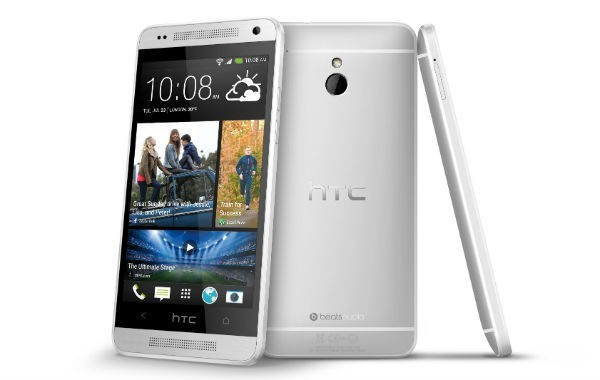Nokia Wins Sales Ban on HTC One Mini in the UK - But HTC One Remains on Sale
HTC is banned from selling the HTC One Mini in the UK from 6 December due to a patent infringement, but not the HTC One.

The England and Wales High Court has today granted Nokia a sales ban against the HTC One Mini, but not against the flagship HTC One smartphone.
In October, Sir Richard David Arnold, presiding judge of the patents court ruled that certain HTC smartphones - including the HTC One - had infringed one of Nokia's patents relating to a "modular structure for a transmitter and a mobile station."
On Tuesday, Arnold granted Nokia the right to impose a sales ban on products infringing the patent, but in his verdict decided to limit the sales ban to only the HTC One Mini, putting a stay on the rest of the injunction pending the outsome of an appeal.
The Taiwanese phone manufacturer has until 4pm on 6 December to appeal the judge's decision not to grant a complete hold on the sales ban.
According to court documents, HTC sold about 715,000 smartphones in the UK between January and September 2013, earning revenues of £221 million.
Christmas period
In his ruling, Arnold said that he had accepted evidence from HTC that banning sales of the flagship HTC One smartphone between now and February or March 2014 would cause likely harm to HTC, since "the pre-Christmas period is an important period for smartphone vendors."
Arnold added: "So far as the One is concerned, HTC's evidence is that the consequences of an immediate injunction will be catastrophic for its UK business because the One is its flagship model."
While the judge is somewhat sceptical of the "dramatic picture" HTC paints, he accepts that the damage which HTC will suffer if prevented from selling the One will be "both considerable and very difficult to quantify."
Contingency plans
When it comes to the HTC One Mini though, Arnold is less lenient, citing the fact that HTC knew it was facing a patent infringement claim in Germany and still launched the One Mini 18 months after the German proceedings began without making any "contingency plans".
The court documents show that HTC had tried to ask the judge for a full stay of the injunction pending appeal and had offered to pay a sum per phone as a security for damages in the event that its appeal proved to be unsuccessful, however Nokia opposed this and asked for damages to be paid instead.
Nokia is continuing to pursue a claim for financial compensation for the patent infringement. Arnold said in his verdict that he expects any appeal made by HTC against the patent infringement to be held in either July or October 2014.
The High Court of England and Wales is the third court this year to find HTC guilty of infringing Nokia patents. Nokia's legal battle with HTC began in 2012 with, as a Nokia statement read, "the aim of ending HTC's unauthorised use of Nokia's proprietary innovations."
Nokia has now asserted more than 50 patents against HTC in France, Germany, Italy, Japan, the Netherlands, UK and US.
© Copyright IBTimes 2025. All rights reserved.






















